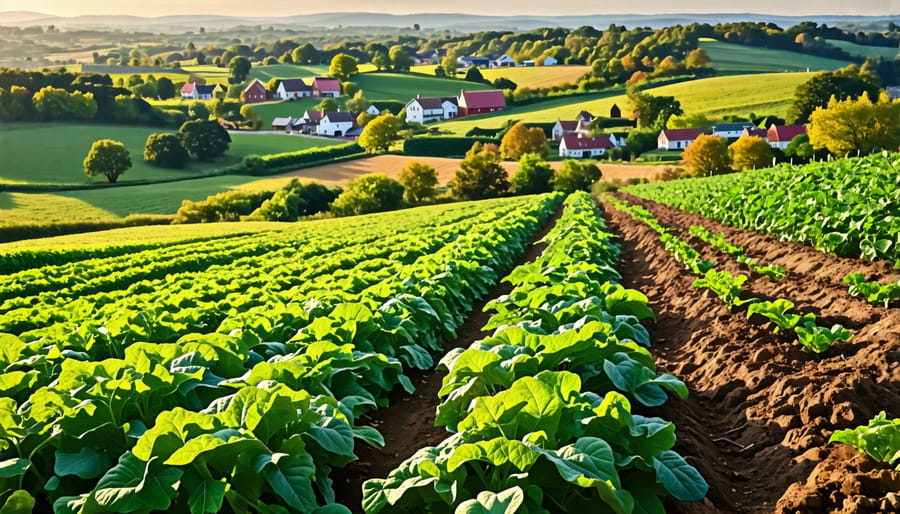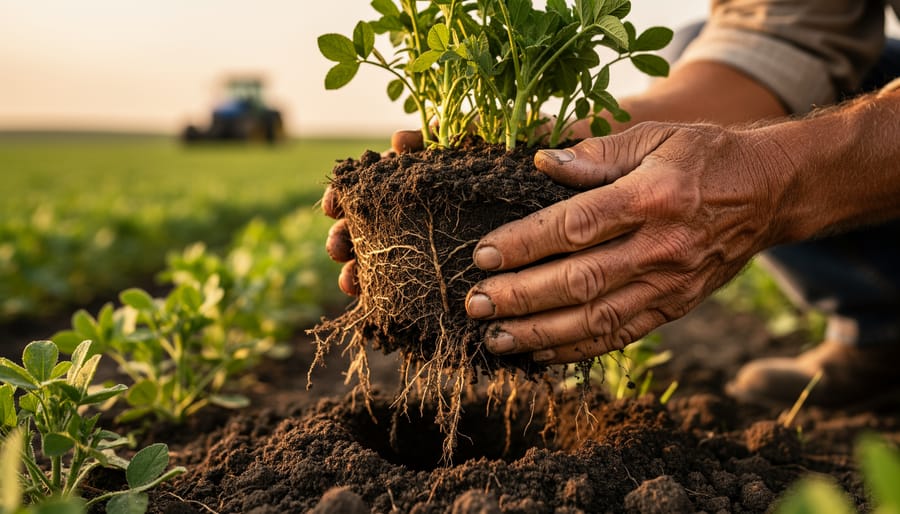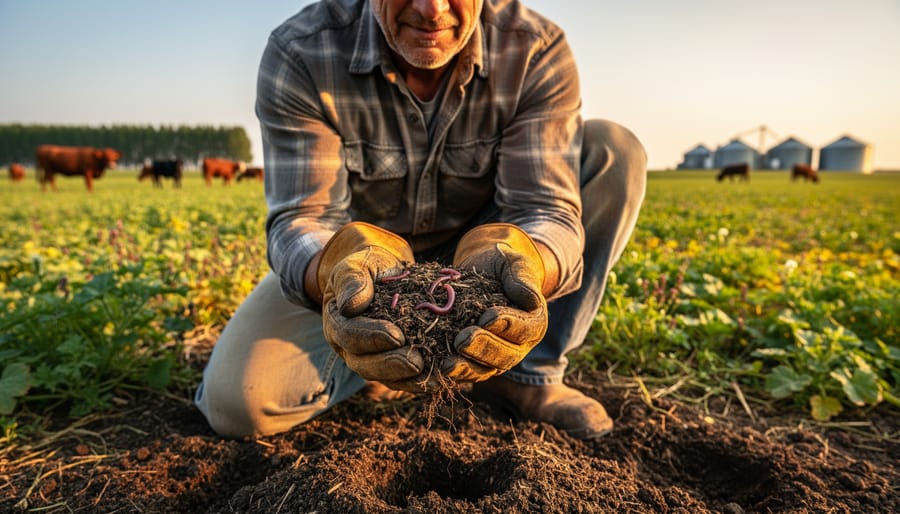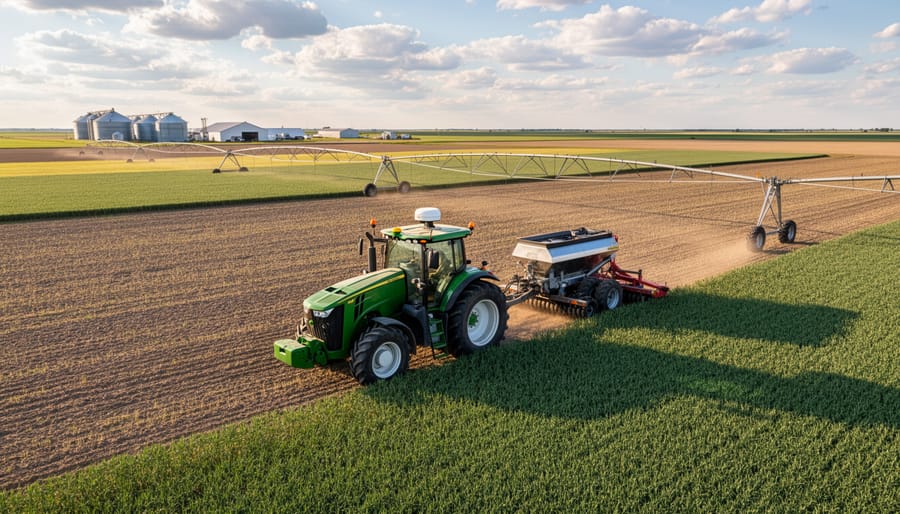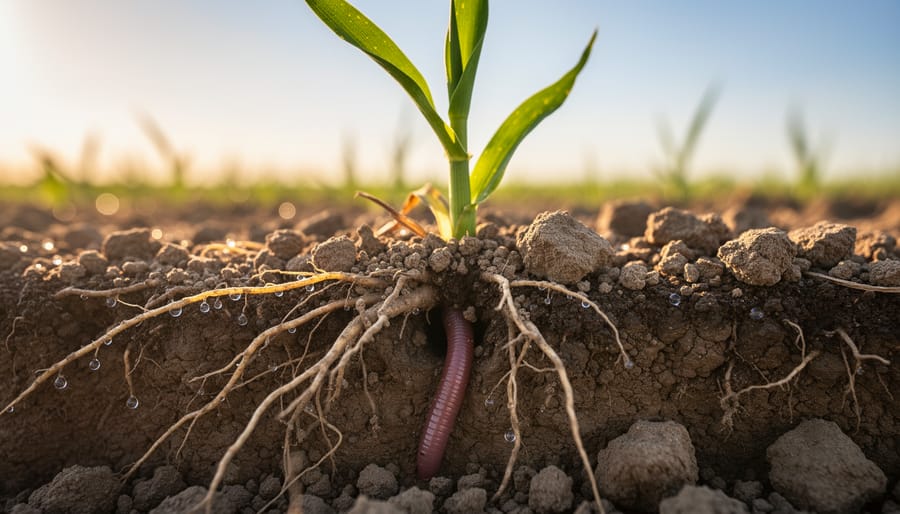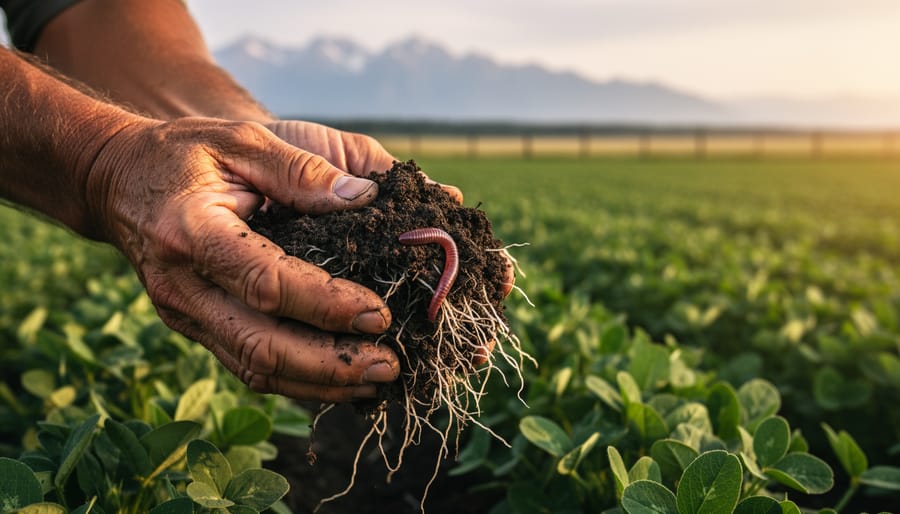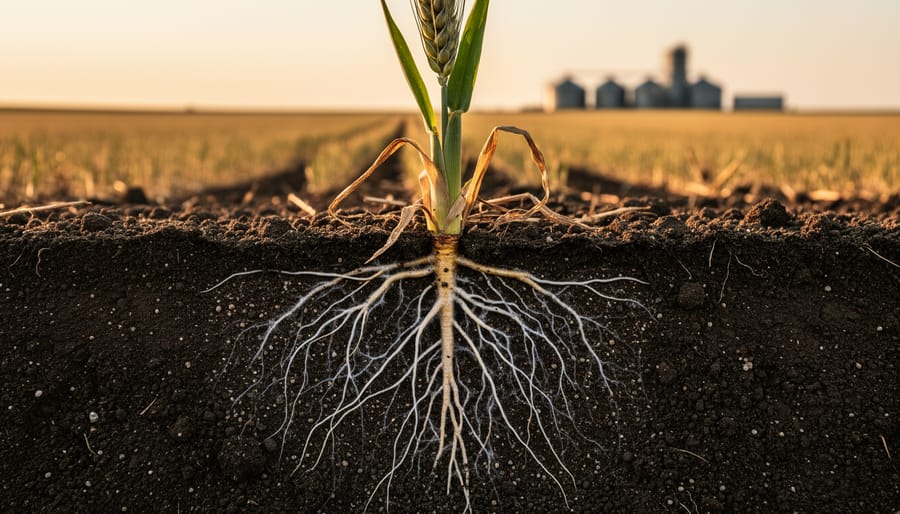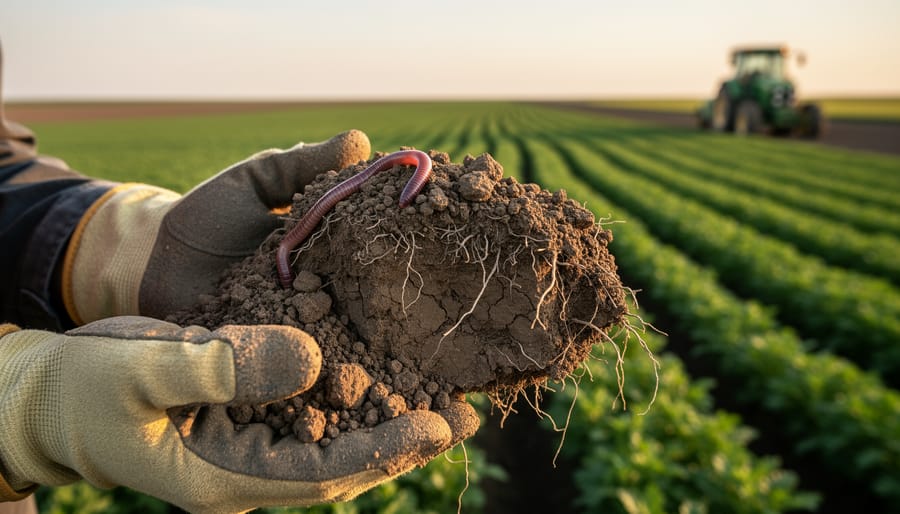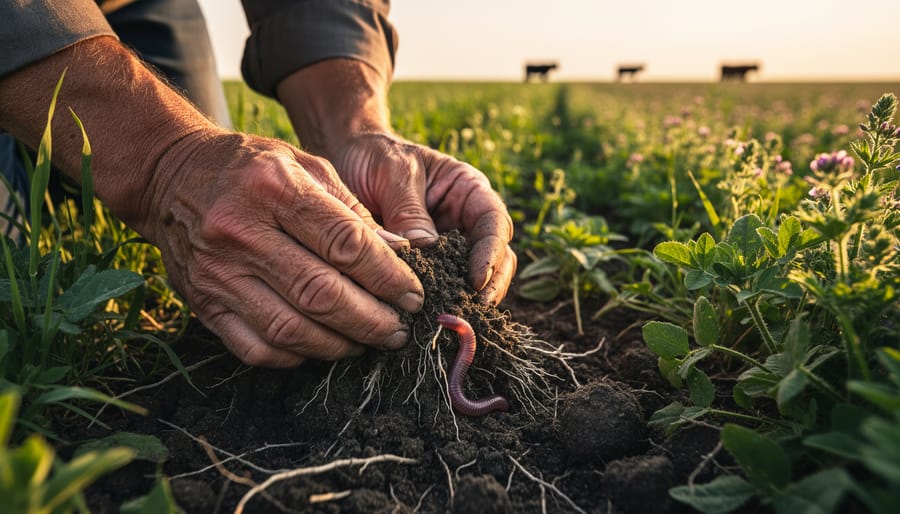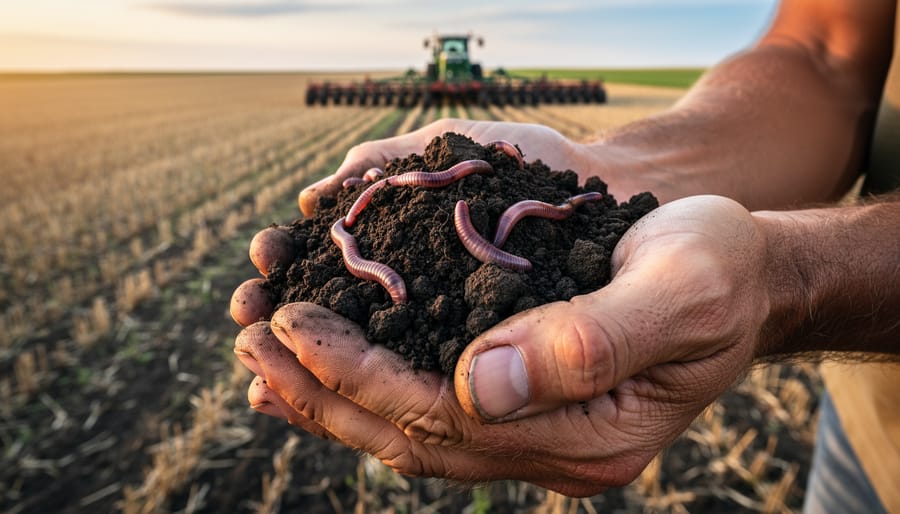Adopt crop rotation techniques to naturally enhance soil health, increasing biodiversity and breaking pest cycles while reducing the need for synthetic inputs. Integrate cover crops to suppress weeds, boost nitrogen levels, and retain soil moisture, fostering a resilient agricultural ecosystem. Implement organic composting methods by recycling farm waste into rich humus, thereby minimizing landfill contributions and improving soil structure. Collaborate with organic organizations in Canada to access region-specific knowledge and resources, aligning practices with national standards for sustainable success.
The Core Principles of Organic Farming
Emphasis on Soil Health
Organic farming practices place a strong emphasis on soil health, which is pivotal in fostering sustainable agriculture. By prioritizing the use of natural fertilizers like compost and manure, organic farming enhances soil fertility and structure, increasing its capacity to retain water and nutrients. This approach not only reduces the need for synthetic inputs but also drives biodiversity in the soil, promoting a thriving community of beneficial organisms that keep the ecosystem in balance. Organic fields, therefore, tend to have richer soils, leading to more resilient crops capable of withstanding environmental stresses such as droughts or pests.
For Canadian farmers, particularly in Alberta, understanding the importance of soil health is essential. Practices you implement today can ensure long-term productivity and environmental health, making your fields more sustainable for future generations. Engaging in community events and workshops, learning from field experts, and sharing experiences with fellow farmers can provide you with practical insights and strategies tailored to local conditions, helping to foster a vibrant farming community committed to ecological stewardship.
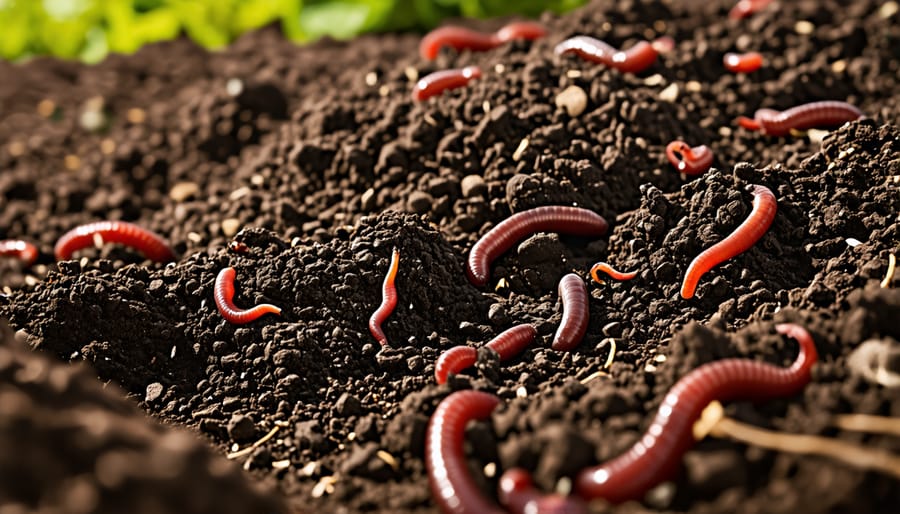

Biodiversity and Ecosystem Management
Organic farming plays a crucial role in enhancing biodiversity, fostering ecosystems that thrive through natural processes. In Alberta, farmers find that promoting biodiversity in organic fields brings numerous advantages, such as improved soil health and pest resilience. By integrating diverse crop rotations and cover crops, organic practices create habitats for beneficial insects and wildlife. This in turn leads to a balanced ecosystem where natural predators help control pests, decreasing reliance on chemical interventions.
Canadian agricultural expert Dr. Jane Simmons notes that “increased biodiversity in organic farming not only supports ecosystem services, like pollination and nutrient cycling, but also contributes to the resilience of farming systems against climate change.” Her insights align with case studies where Alberta’s organic farms have demonstrated improved yields and ecosystem stability. By prioritizing biodiversity, Canadian organic farmers create self-sustaining systems that are both economically viable and environmentally sustainable, showcasing a model for future farming that benefits both nature and agriculture alike.
Environmental Benefits of Organic Farming
Reduced Chemical Pollution
Organic farming significantly reduces chemical pollution by eliminating the use of synthetic fertilizers and pesticides, which are major contributors to water pollution. By relying on natural alternatives, like compost and crop rotation, organic farming practices minimize chemical runoff into lakes and rivers, preserving water quality and protecting aquatic ecosystems. In Alberta, local farmers are increasingly adopting these practices, seeing firsthand how reduced chemical inputs can enhance soil health and biodiversity without compromising yield. This shift not only supports a cleaner environment but also fosters a collaborative community of farmers dedicated to sustainable agriculture in Canada.
Enhanced Carbon Sequestration
Organic farming is increasingly recognized for its ability to enhance carbon sequestration in soils, a critical process in the fight against climate change. By embracing techniques like crop rotation, cover cropping, and the use of organic fertilizers, farmers can significantly boost the amount of carbon stored in their fields. These practices enrich the soil with organic matter, improving soil structure and increasing its capacity to trap carbon. In Alberta, where soil degradation poses a challenge, organic methods provide a sustainable solution to improve soil health and productivity.
A study conducted by Canadian agriculture experts showed that organic farms in the region reportedly stored an average of 30% more carbon compared to their conventional counterparts. Diversified planting not only enhances biodiversity but also promotes a more robust microbial community. These practices contribute to a more stable and sustainable ecosystem, helping farmers build a resilient agricultural landscape. By choosing organic methods, Alberta farmers can play a pivotal role in mitigating climate impacts while boosting their farm’s productivity.
Water Conservation Techniques
Organic farming offers effective water conservation techniques crucial for Alberta’s unique climate. By promoting healthy soil, organic farms enhance natural water retention and minimize runoff. Practices like cover cropping and rotational grazing play significant roles in improving water infiltration, ensuring water reaches plant roots more efficiently. These strategies not only combat drought but reduce the need for irrigation, saving water and overhead costs.
Furthermore, organic farming limits the use of synthetic fertilizers and pesticides, which often contaminate waterways, thus maintaining cleaner water sources for communities and ecosystems. Farmers in Alberta have successfully implemented diverse crop rotations, encouraging a healthy soil microbiome that retains moisture and nutrients more effectively. By sharing Canadian success stories and expert insights, we inspire more farmers to adopt these sustainable techniques.
Embracing organic methods empowers the farming community to protect valuable natural resources while maintaining productivity. Together, by integrating these practices, we can ensure a more sustainable and resilient agricultural future for Alberta.
Case Studies from the Alberta Region
In Alberta, the organic farming community stands as a powerful testament to sustainable agricultural practices. Among the shining examples is Windy Acre Farms, located just outside Calgary. By transitioning from conventional to organic methods, husband-and-wife team Rachel and Oliver Robinson have seen remarkable results. Their focus on soil health has led to increased yields of hearty vegetables and vibrant grains without relying on synthetic fertilizers. Leveraging crop rotation and cover cropping, they have not only improved soil fertility but also enhanced biodiversity on their land.
Just north of Lethbridge, Glenmore Organics has embraced permaculture principles to create a thriving ecosystem. Founded by Yvonne and Marcus Thompson, the farm integrates native plants alongside organic crops, promoting natural pest control and creating habitats for pollinators. This approach has significantly reduced chemical input costs, while boosting the farm’s overall productivity. According to Marcus, “Working with nature rather than against it has been a game-changer for us, both economically and environmentally.”
Meanwhile, Willow Creek Produce, nestled in the heart of Alberta, is pioneering innovative organic dairy farming techniques. By focusing on pasture-raised cattle and utilizing rotational grazing practices, farm owner Diana Liu has enhanced animal welfare and milk quality. Her commitment to maintaining a closed-loop system ensures nutrients are effectively recycled back into the farm’s ecosystem, minimizing waste and promoting sustainability.
The First Nations’ presence in organic agriculture cannot be overlooked. On the outskirts of Edmonton lies Eagle Feather Farms, an initiative driven by Indigenous values of land stewardship and holistic health. By integrating traditional knowledge with organic practices, they’ve developed a model that respects cultural heritage while delivering sustainable produce. Through workshops and community engagement, they empower others to follow suit, fostering a shared commitment to sustainable living.
These Alberta-based case studies provide concrete examples of how organic farming can transform regional agriculture. By prioritizing ecological balance and community well-being, these farms not only contribute to a resilient food system but also inspire others to consider the tangible benefits of going organic. Such success stories highlight how sustainable practices can effectively bridge the gap between agriculture traditions and innovative environmental stewardship.
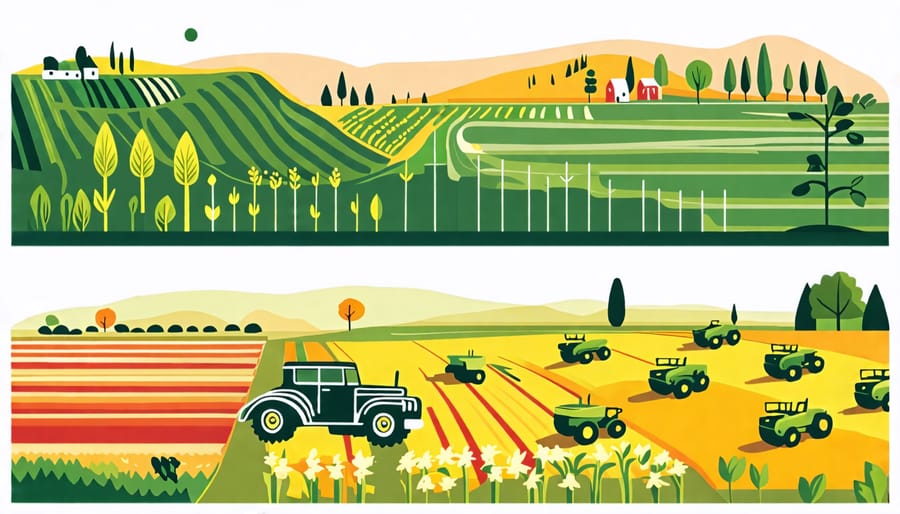
Expert Insights: Interviews with Canadian Agricultural Professionals
In Canada, organic farming presents both promising opportunities and considerable challenges, a sentiment echoed by experts across the country. Dr. Sara Johnston, an agronomist specializing in sustainable practices, emphasizes the growing potential of organic farming in the Alberta region, pointing to increasing consumer demand for organic produce as a significant motivator for farmers. “The market for organic goods is not just a trend; it’s a fundamental shift,” Johnston states, highlighting how farmers can adapt to meet this demand sustainably.
However, experts also note the challenges, particularly the need to maintain soil fertility and manage pests without synthetic chemicals. Michael Thompson, a veteran organic farmer near Calgary, shares, “The transition to organic farming demands patience and innovation. It’s about finding natural solutions and building resilient ecosystems.” His approach—using crop rotation and natural predators—demonstrates practical strategies that can inspire others in the field.
Despite these hurdles, the sense of community and shared knowledge among Canadian organic farmers is a testament to the sector’s resilience. Local networks and support systems are critical, as Johnston points out: “Collaboration among farmers is key. Together, we can navigate these challenges and create a thriving organic farming landscape in Canada.” Through shared experiences and expert insights, Canadian farmers are well-equipped to capitalize on the growing organic market while promoting environmental sustainability.
Challenges and Considerations
Transitioning to organic farming presents a unique set of challenges for Canadian farmers, particularly in Alberta, who are used to conventional methods. One major consideration is the shift in mindset and practices. Farmers must become adept at using natural fertilizers and pest control methods, which can initially be less predictable than synthetic alternatives. This requires a deep understanding of soil health and biodiversity, elements that are often mentioned in Canadian agricultural case studies highlighting resilient farming techniques.
Additionally, the conversion period, typically lasting three years, might impact income due to reduced yields. However, expert interviews with seasoned organic farmers suggest strategic planning and diversification as key strategies to manage this transition period effectively. Access to support networks and community resources is also crucial, allowing farmers to share knowledge and experiences. These factors, along with market demands for organic products, underline the importance of navigating this transition with patience and support to reap long-term benefits. Sustainable agriculture holds promise, but careful planning and adaptation are essential for success.
Practical Steps for Transitioning to Organic Practices
Transitioning to organic practices can be a rewarding journey for farmers in Alberta, and it often starts with incremental changes. Begin by analyzing your current farming practices and identifying areas where organic methods can be integrated. A helpful first step is to conduct a soil test to understand its condition and determine what amendments are necessary for organic farming. Transitioning might involve introducing organic fertilizers and developing a crop rotation plan that enhances soil health and reduces pest pressures.
Connecting with local expert networks can provide invaluable insights and support. Consider joining a community of organic farmers who can offer practical advice and share experiences. Such communities often hold workshops and farm tours that showcase successful organic methods, providing ample learning opportunities. Alberta Agriculture and Forestry often supports these gatherings, making them great resources for new and transitioning organic farmers.
Be prepared to engage with the certification process early on. Familiarize yourself with the Canadian Organic Standards, as this will guide your farm management practices during the transition. Reputable organizations, like the Organic Agriculture Centre of Canada, offer resources and support through this certification journey.
Lastly, remember that organic farming thrives on collaboration and sharing knowledge. Building strong relationships with other farmers can lead to collective purchasing agreements for seeds and inputs or shared equipment usage, lowering costs and fostering a sense of community. For more detailed guidance and supporting case studies, explore resources available online, including this detailed blog on transitioning to organic practices. By taking these practical steps and connecting with fellow farmers, you set the foundation for a thriving organic operation.
Conclusion
Embracing organic farming offers numerous environmental benefits that Canadian farmers, especially in Alberta, should consider. By nurturing soil health, reducing chemical runoff, and promoting biodiversity, organic farming practices create more resilient agricultural systems. This approach not only supports the broader fight against climate change but also enhances the long-term sustainability of our lands. Engaging with this method can boost community collaboration and knowledge sharing among farmers, fostering a sense of local stewardship. We encourage Alberta’s agricultural community to explore the potential of organic farming, learning from Canadian case studies and insights from agricultural experts to implement effective, eco-friendly practices in their operations.

